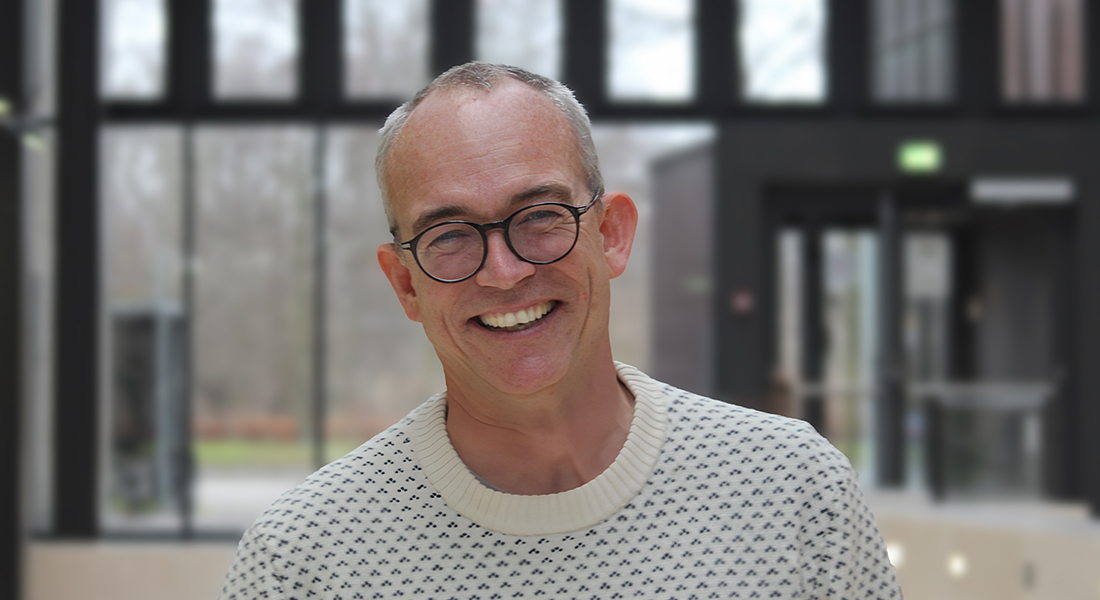Morten Lindow is the new Head of Center for Pharmaceutical Data Science Education

As per February 1, Center for Pharmaceutical Data Science Education welcomes Morten Lindow as the new center leader.
“I am very pleased that Morten will be leading the center” says Professor Dan Stærk, Head of the Department of Drug Design and Pharmacology. “The center plays a very important role in integrating data science in pharmaceutical sciences, allowing us to educate candidates with data science competencies needed in the pharma- and life-science industry in the future.”
The Center is based upon grant funding of DKK 123 million from three Danish private foundations; the Novo Nordisk Foundation, the Lundbeck Foundation, and the LEO Foundation. The Center is a collaboration between the University of Copenhagen (UCPH) and the University of Southern Denmark (SDU) and encompasses seven departments. The purpose is to boost the pharmaceutical educations by integrating data science at all levels of education, from bachelor's, master's and PhD level to continuing education.
Morten Lindow smiles: “It is a great honor to step into the role as center leader. I am really looking forward to meeting and learning from all the people already contributing to, helping, or having stakes in the center.”
Morten Lindow comes with a strong background in drug discovery and has solid experience with building cross-disciplinary organizations and ecosystems. He also has broad experience with data science and its application in different pharmaceutical disciplines and he is full of ideas and enthusiasm for the new center.
You have several years of experience within the field of data science and drug discovery. Which new and particularly important tendencies do see in this area?
“One of the most significant transformations in the 21st century is the rapid disruption and the accompanying opportunities arising from new breakthroughs in both data science and biotechnology:
In data science, AI will soon be a main actor in our information networks, process data, and even make decisions that were once exclusively within the realm of human intelligence. Combine this with technological innovations in our ability to measure and collect data at massive speeds and the ability to intervene and modify our biology. This provides immense possibilities to improve but also disrupts our societies and the human lives.
A desirable future is the improvement of lives through the right pharmaceutical interventions at the right time to the right people. Invented in fast and efficient ways that are also safe, transparent, and equitable. We have the opportunity to make new types of drugs that can treat conditions that earlier were just facts of (short) lives. Those are big hopes, and we are not guaranteed to get there. However, the center is taking on important co-accountability of one of the most fundamental aspects that can help us and help us do it right: education of the next as well as the current generation of pharmaceutical data science experts.
These opportunities are well known, and many organizations are stampeding to build big digital areas within their organizations and hire more and more data engineers and scientists. However, the pain of integrating and understanding each other remains and is becoming very apparent a couple of years after building the big digital areas. The problem is usually formulated as one of ‘bridging’ or finding and training ‘bilingual business analysts’, which is a sensible first step. But we need more than bridges, we need integration: biologists, chemists, pharmacists and leaders must have much higher data literacy and understanding of what can and cannot be done. Thanks to university programs, many new recruits are already starting to have increased data literacy, and this is a tendency that we will be significantly enhanced with the center”.
The center spans across two universities and seven departments. What is your vision for building a strong, coherent, and successful center?
“Basically, all members of the center need to do it together:
We must evolve the purpose together and turn it into concrete actions that we feel are pushing in the right direction. We need to try a lot, do a lot, and talk a lot. And adjust when our solutions are not good enough.
We must make maximal use of the deep mastery and experience in the specific fields of the participating departments. And provide means to improve or supplement that mastery where needed.
We should create clear (but malleable) enabling constraints that create clarity to have autonomy to move and experiment with minimal bureaucracy.
Most importantly, we should develop a shared sense of belonging and identity of being in or affiliated with the center. And we will also need to establish connections, practically and strategically, to the pharma industry, biotech, techbio, and relevant authorities.”
A strong collaboration between SDU and UCPH
As a collaboration between UCPH and SDU, the center includes seven participating departments from the two universities.
Associate Dean for Education Jørgen Kurtzhals from Faculty of Health and Medical Sciences at UCPH welcomes the new center leader:
“With the recruitment of Morten, we get a profile with extensive leadership experience, deep insight into data science, the pharmaceutical disciplines and how their convergence can bring big benefits. Morten thinks creatively and innovatively, and I am very much looking forward to seeing the new national center inspire the pharmaceutical programmes and integrate data science even more clearly. It will be a win for Denmark that we at both SDU and UCPH can deliver talents with the competencies to apply and develop artificial intelligence, machine learning and the use of big data in the pharmaceutical fields”.
Deputy Head of the Center, Professor Jacob Kongsted from SDU, adds: “From SDU we are looking very much forward to collaborating with Morten. We could not think of a more competent and enthusiastic person to drive the mission of the Center.“
For further information on the Center, see www.cpdse.ku.dk.
